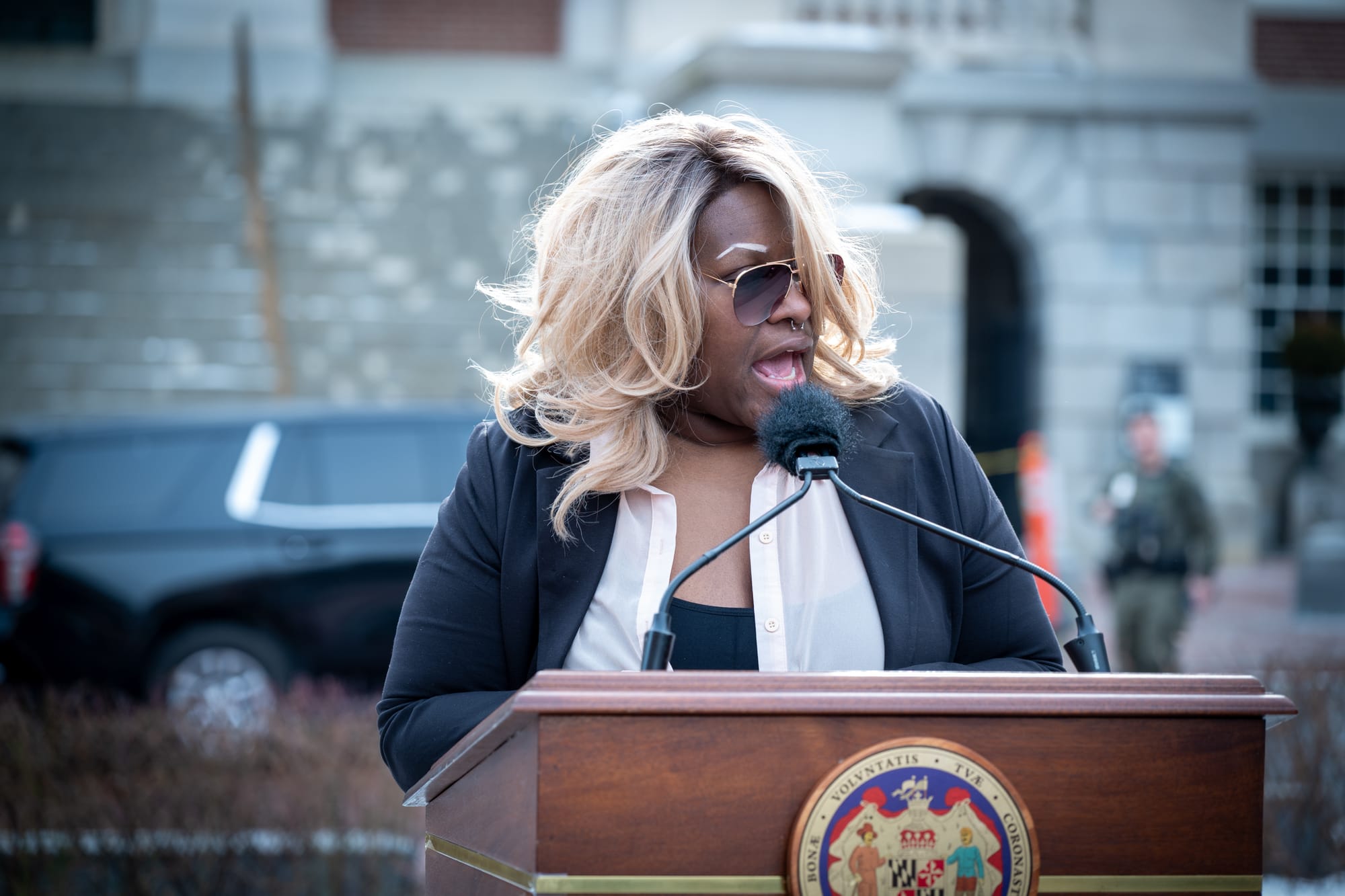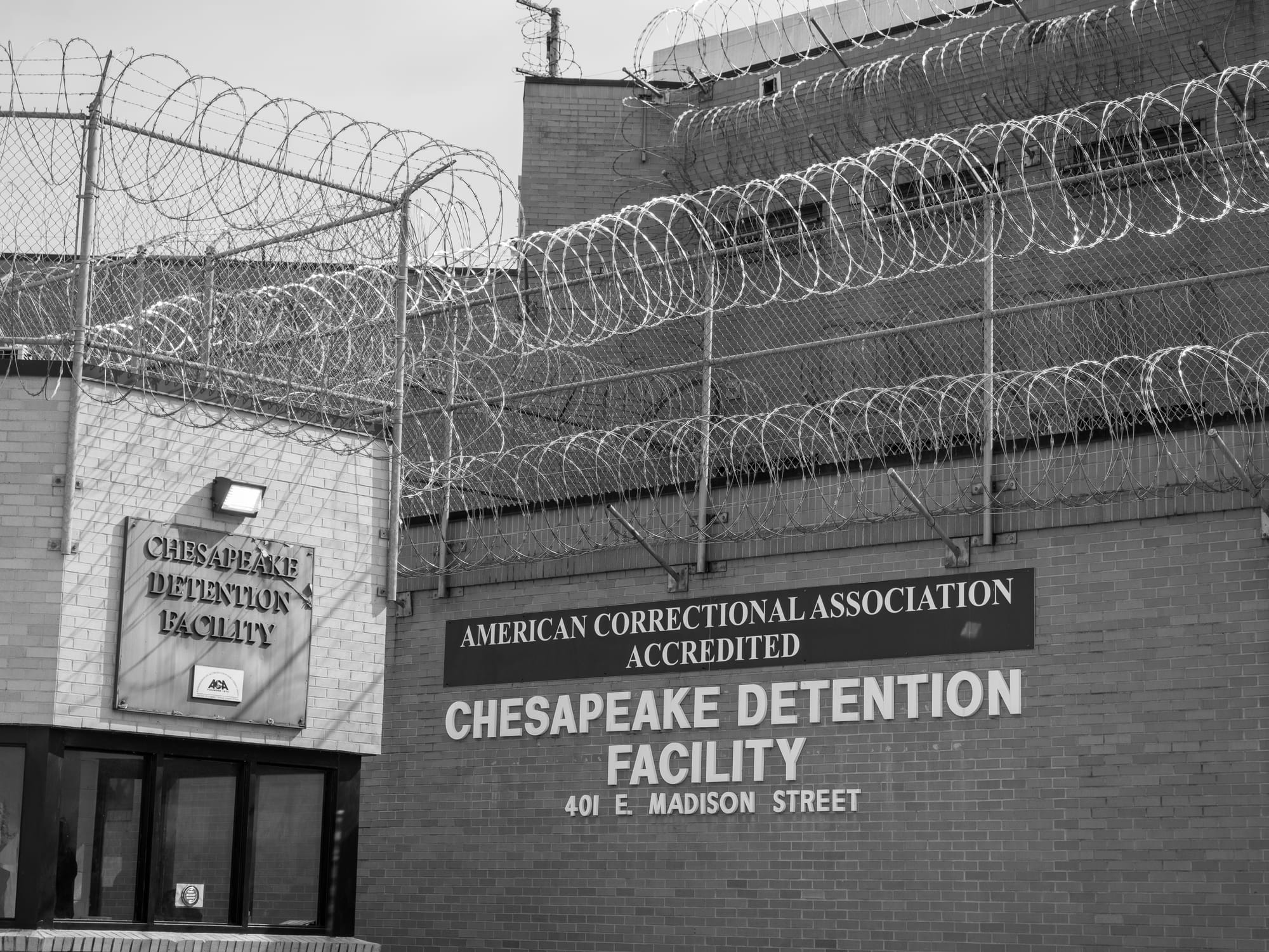
With Baltimore accepting an offer that represented a massive blow to its efforts to combat the overdose crisis, the city's landmark opioid case seems to have finally come to an end.
On Thursday, the city accepted Baltimore City Circuit Court Judge Lawrence P. Fletcher-Hill’s $152 million proposal in the case against McKesson and Cencora, formerly AmerisourceBergen. While appeals are still possible, it could mark the end of a legal saga in which Baltimore sought as much money as possible to augment its harm reduction and treatment initiatives — one that will now bring the city a total of $580 million to its coffers when factoring in a handful of previous settlements.
“Generations of Baltimoreans have lost loved ones to substance use as a direct result of the opioids that Big Pharma pushed on our neighborhoods," Mayor Brandon Scott said in a statement. "While no amount of money can ever undo that harm, this award will help us expand our recovery programs, prevent future overdose deaths, and finally break the cycle of substance abuse in Baltimore."
The problem is that $580 million isn't a lot of money in the scheme of things.
Fletcher-Hill's offer stems from the judge's assertion that the city failed to prove McKesson and Cencora, formerly AmerisourceBergen, were responsible for 97% of opioid-related damages the city has experienced.
The city had initially sought a whopping $5.2 billion in abatement funds, but under the deal, it will receive just $100 million. The remaining $52 million is for “public nuisance” damages from a jury trial last year; it was supposed to receive $266 million before the deal.
Yet it's not just a disappointment because of the fact that the pot of money could've been so much larger. It's also frustrating because the dollar figure is already dwarfed by what the city spends on other priorities.
For example, the $580 million is less than the police department's annual budget — and the opioid dollars are to be spread out over 15 years.
Attorney's fees aside, if that number were to be spread out evenly, it would account for about $38.7 million annually.
To put it into perspective: The Baltimore Police Department's budget for the upcoming fiscal year is nearly $613 million.
It doesn't help that the city has already shown that it's willing to pull money from its restitution fund to supplant existing expenditures in the health department's shoestring $201 million budget.
The city's budget calls for $3.3 million for the city’s syringe service program, 911 nurse triage program, and population health program to be taken from the restitution fund rather than the city’s general fund, officials have said.
That decision to use the funds for supplantation was made without even accounting for President Donald Trump's assault on public health funding, in which he has battled courts to implement $11 billion in cuts to health departments nationwide.
Nearly half of the health department's budget comes from federal funding. If it were to take a hit, that could lead to even more restitution funds being used to plug holes in its budget.
All of this is compounded by the president’s July 24 executive order, which, among other things, looks to defund life-saving harm reduction programs. It poses significant public health and human rights implications, yet the city has no plans to combat it.
Restitution funds are guaranteed. However, with such uncertainty at the federal level, it's unclear how much of the $580 million will be used to turbocharge the city's existing harm reduction and treatment programs rather than maintain the status quo.
In the scheme of things, the pot of money is not nearly as large as it seems. Yet that speaks to the importance of using it wisely, which entails allocating every dime of it to strengthen the city's public health infrastructure.
The lives of those who use drugs depend on it, and the city can't afford to blow this opportunity.

Miss last week's newsletter? You'll want to check it out
Baltimore was brimming with public discourse about the city's overdose crisis this past month. Yet as city leaders chalked it up to a success ahead of a massive loss in court, any concrete actions to save the lives of those who use drugs remain to be seen.
On Wednesday, the Mayor's Office of Overdose Response concluded its fourth and final community listening session to garner public input on the city's draft strategic plan — one that aims to reduce overdoses 40% by 2040. Those sessions coincided with a string of Baltimore City Council committee hearings, making for a busy month after city leaders weaponized ongoing litigation to avoid speaking publicly about overdose deaths in detail for more than a year.
Then came Friday, when the city was dealt a massive blow upon learning it'd receive just a fraction of what it sought in its landmark opioid lawsuit.
Read the full newsletter here.
Mobtown Redux's Overdose Data has been updated with the latest local, state and national data
Baltimore's overdose death toll in 2024 has increased to 777 — this is preliminary data that's subject to change as causes of death are determined. That marks a nearly 26% decrease from the year prior.
In the 12-month period ending in June, Baltimore saw 586 deaths, a death rate of 100 per 100,000 people. Statewide, there were 1,360 deaths, a death rate of 22 per 100,000 people.
The data indicates that fatal overdoses continue to trend downward after years of climbing, though poor Black neighborhoods in West Baltimore continue to suffer the most.
Check out Mobtown Redux's Overdose Data Dashboard here.
Click here to learn more about harm reduction resources in the Baltimore area.
The Advocate: "Trump's war on harm reduction will cost LGBTQ+ lives"
The Trump administration is wrong about a lot of things when it comes to LGBTQ+ health and well-being. They have attacked transgender medicine, disbanded federal HIV prevention offices, and even endorsed conversion therapy under a new name. There seems to be no floor to how low this administration will go to undermine the health and well-being of LGBTQ+ people in the United States and around the world.
Their most recent action is yet another example of the destructive policies that worsen LGBTQ+ health: President Trump signed an executive order instructing SAMHSA, the nation's scientific agency administering behavioral health and substance use interventions, to defund harm reduction programs nationwide.
Click here to read the full article.









Comments